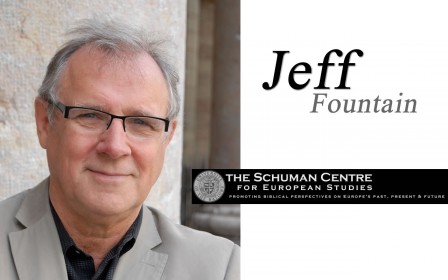
Myths about Faith and Work
Christian faith is not a part-time activity. It is to be lived out 24-7-52. For many Christians this involves living out our faith at home, in our communities, and in our workplaces. But several myths about faith and work can prevent us from being effective witnesses in this area of life.
Kara Martin is Associate Dean of the Marketplace Institute at Ridley College, Melbourne, Australia.
When we met at Ridley one year ago I asked her if she could condense some of the most important messages she had learned that would help Christians be more effective witnesses in their workplaces.
Myths about Faith and Work
Faith is to be lived out 24-7-52. For many Christians this involves living out our faith at work. But several myths about faith and work can prevent us from being effective witnesses in this area of life.
Work is cursed
We all know that work is tough and hard and frustrating. It is tempting to think that the one good thing about heaven is that we won’t be able to work there! Around us, everyone wants to retire early so that they can stop working. However…
A careful reading of Genesis 3 shows that the process of working is cursed, not work itself. In fact, work is a good gift from God, and God himself is a worker who is still working (John 5:17)
Work may be frustrating, but it is not impossible, and God will often bless us through our work
God doesn’t care about my secular work
The focus of so many sermons and talks is on evangelism and worship. It feels like Gospel work is the only work that God values, and he only cares about the spiritual parts of our lives. However…
If you read Genesis 2 from verse 15, you will realise that the first work assignment from God was to till the earth (physical work), and the second assignment was to name the animals (creative/knowledge work).
God describes himself working through the prophets as a builder, gardener, singer, shepherd, potter and farmer.
God doesn’t just create the world, and leave it. He works to sustain his creation, and provide for his creatures, through all of us.
The only way I can be a Christian at work is to evangelise my workmates
Often there is pressure on us to use work as our opportunity to evangelise our colleagues. It sometimes feels that our pastor sees that as the only useful part about our job, aside from giving to the church. However…
Although proclaiming the Gospel is necessary, people often read our lives before they listen to our words.
There are many ways to express our faith in our work, and the most important way is to be excellent at our job. Peter in 1 Peter 2 encourages us to live such good lives that God might be praised.
In Colossians 3, Paul tells slaves to work whole-heartedly as if for Jesus. This suggests that our work can also be our way of serving God, of worshiping him.
If I am a serious Christian I should leave my job
We may have heard sermons about how God wants us to leave our jobs and go to the mission field or plant a church… Often it feels selfish to hold onto our jobs and ignore those calls. However…
Serious Christians should seek to serve God wherever they are placed. (See 1 Corinthians 7:17)
All of us need to continually ask God to prompt and guide us to the work he wants us to do, using the gifts and skills and passion and experience he has developed in us.
Truths about Faith and Work
Your work is good
God created work as a good gift for us. Working is actually part of human flourishing. Those denied work struggle in many ways.
We are all made in the image of a God who works.
We notice that God took pleasure in his work of creation, and we can take pleasure in our work also.
We need to separate work from employment, and learn not to value our work according to how much we are paid.
You can worship God through your work
In Genesis 2:15, humans are told to work the ground and keep the garden. The Hebrew words for “work” (avad) and “keep” (shamar) are later used in reference to worshipping God and keeping his commandments.
Work is one of the ways that we keep the Greatest Commandment: to love God and to love others.
You can work with Jesus to redeem the workplace
Evangelism is one aspect of redeeming the workplace.
We also do Jesus’ work of renewal when we are creative, we do good work, we act for justice, we build positive relationships or we right wrongs, or we stop evil.
Kara Martin
Associate Dean, Marketplace Institute
Ridley College, Melbourne, Australia
















